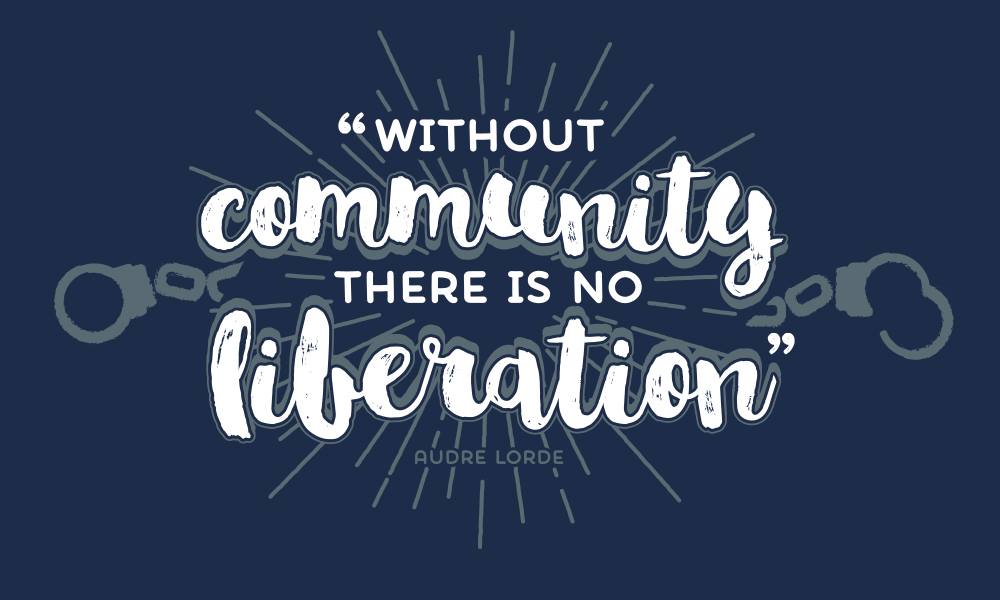[content note: violence, racism, transphobia, misogyny]
There was once a young black man, traveling alone. It had been a long, hot, grueling day and he was eager to be home. As the hour grew late he decided to take a shortcut home through a neighborhood. There, he saw a group of men armed with clubs and guns, and he felt his heart begin to race. He told himself to stay calm, to look respectful. It didn’t do any good. He saw them start to run toward him– he put his arms in the air, but when they didn’t stop, he threw himself on the ground and prayed.
No one answered his prayer as they viciously beat him. No one came when he felt his bones begin to snap. Finally, they left him alone, in the middle of the road, and spread tape around his prone, dying body.
POLICE LINE — DO NOT CROSS, it said.
He could hear voices as people began to gather, could hear them over the pounding in his ears as his heart struggled to beat.
“He does have a wide nose. You can see it, plain as day.”
“Probably stole those skittles, anyway.”
“I heard he stands on the corner and sells cigarettes.”
“Actually, I heard it was CDs.”
He could feel their stares. He could feel it when they crossed to the other side of the street to pass by him.
***
There was once a trans woman trying to move through her day without attracting any attention. She hadn’t eaten anything, or had anything to drink, since she’d left her house that morning but it had been long enough where that didn’t matter. She had to stop at the grocery store, there wasn’t anything left to cook for her family that night, but her bladder was about to burst. She stared at the door to the ladies room, nervous but trying not to be. Finally, taking a breath and bracing herself, she slipped into the bathroom and hurried into the closest stall, heedless to how clean it was or if the toilet was clogged.
She didn’t notice the man watching her enter the bathroom. Didn’t see his hands clench into fists, or rage spark in his eyes.
Exiting the stall, she kept her eyes down and her body as small as she could make it. As she reached for the towel to dry her hands, an arm stopped her. Terrified, her stomach dropping into her feet, she met his eyes in the mirror. It was the last thing she saw before he started beating her.
Minutes later, she realized she was on the floor. Everything hurt, but she could hear voices.
“I tried to tell you about those predators.”
“It’s so sick. Gender confusion is ruining our culture.”
“Pervert. Rapist.”
What hurt even worse was the silence as they left her behind, bleeding and broken.
***
There was once a woman at a college party. It was the biggest kegger of the year, and she was out to enjoy the night with her friends– the last night she’d probably get to spend with most of them. After this it was graduation and job searching and moving away and adulthood. She didn’t want to think about it. Tonight she wanted to be carefree one last time.
She spent the night on the dance floor, had a couple drinks. After a few hours she settled onto a couch between two of her friends, but wanted one more beer before calling it a night. As she was about to get up to get it, one of her best friends offered to get it for her. Grateful, since she was tired from dancing and her shoes were killing her, she handed him her cup.
A little while later, she started feeling awful. Maybe three had been too much– but that didn’t seem right. She didn’t normally get this drunk off just three beers. Dizzy and sick, she turned to her best friend and asked him to take her home.
She doesn’t remember anything after that when she wakes up. Nauseated, she can taste bile. Slowly she realizes she’s freezing. Her dress is torn to pieces and with a horrified shock she realizes her panties are gone. What in the world happened to me? Opening her eyes, she nearly shrieks at the cockroach on the ground next to her face. Why am I behind a dumpster?
That’s when she hears the voices.
“Slut. Whore.”
“He has such a bright future ahead of him.”
“Did you hear he was a swimmer?”
“Wait. Isn’t he on the football team?”
“At any rate, she shouldn’t have been drinking. What did she expect would happen?”
Each word is a knife in her heart. The sound that sinks the deepest, into her bones, is the sound of them leaving.
***
But the people who we see as a Samaritan– Syrian refugees. The #BlackLivesMatter movement. Gay Pride. Trans men and women.– the people we despise, the people who make us uncomfortable, who disrupt our otherwise “pleasant society” … as they travel, they come to where the black man lies in the road, where the trans woman is crumpled up in a bathroom, where a woman lies torn and bleeding behind a dumpster, and their hearts are stirred to compassion.
They bandage their wounds, they offer their help. They give them shelter, a space to heal and to be safe.
Jesus turns to us and asks “Which of these was a neighbor?”
The expert in the law, a man who has dozens of Bible verses at his fingertips, who goes to church every Sunday, who tithes from every paycheck and serves in the bus ministry, replies: “The ones who had mercy, who were kind.”
With a prayer that we will finally, finally, understand, Jesus whispers “Go and do thou likewise.”










